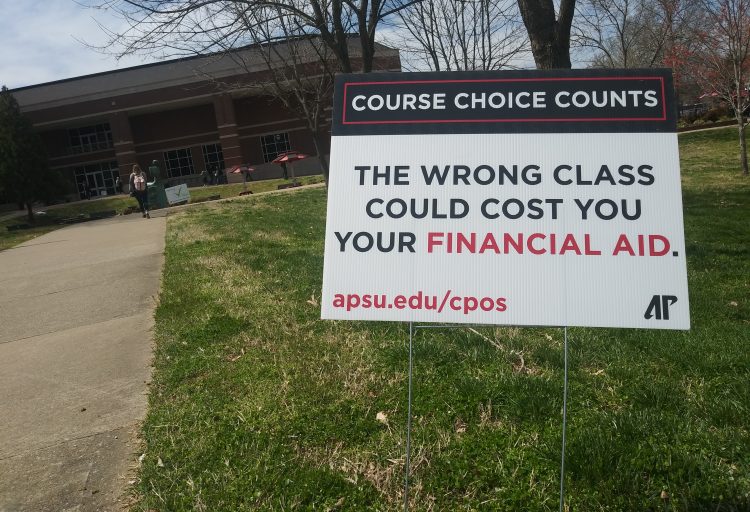MAHALIA SMITH | CONTRIBUTING WRITER
Betty Joe Wallace was a trailblazer at APSU. After graduating with a master’s degree in education from the university, she went on to start two important areas of study: African-American history and Women’s Studies. Wallace was the first to teach courses in these fields, in 1965 and 1978, respectively.
“Over half of her community presentations were on African-American history, race relations, and civil rights.” Michele Butts, professor of history, said.
In Wallace’s time, advocating for these subjects in schools was unpopular. However, she broke those boundaries to do what she believed was right.
“She was a pioneer. And frankly a lot of what she was doing was not well received. So it took a lot of guts.” Butts said. “She had a tremendous tenacity, in valuing and pushing for change […] Her perseverance was amazing.”
As a professor, Wallace did not just teach her students, she “processed” them.
“She used expert questioning techniques to help you see multiple consequences of things and to come to well-developed conclusions.” Butts said.
Wallace constantly dared students to think about their views and opinions of the world.
“She was going to challenge you on what you thought about things,” Jill Eichhorn, associate professor of English and coordinator of women’s and gender studies, said. “She wasn’t going to hand you what you should think about something, and [she would] make sure you understood all the perspectives.”
Wallace went beyond the call of a teacher, even providing some of her own clothes to her students. Many of her students became history teachers.
“Sometimes her young ladies did not have the right clothes. To be a student teacher you have to look a certain way.” Butts said.
Wallace would give her own clothes to students who could not afford new outfits.
Not only did Wallace introduce new classes to APSU’s curriculum, she also paved the way for women to hold administrative positions at the university.
“This was a very tough place for women,” Butts said. “She’s the reason in a way, we have the female deans and administrators we have.”
Eichhorn met Wallace in 1995, before APSU had a female president. Eichhorn recalled a speech in which Wallace campaigned for women in administrative roles at APSU.
“[Wallace] said ‘we can’t discover if women are capable of leadership if we never give them the opportunity.’” Eichhorn said.
At the time, there were no female candidates considered for the position. In the early ‘90s, a woman became a dean for the first time.
A popular teacher and colleague, Wallace impacted everyone she worked with.
“She saved my life,” Butts said. A survivor of breast cancer, Butts said Wallace pushed her to get screened.
Wallace passed away in 2014, but her legacy will not end. A few of her former colleagues and students have started a fund in her honor to bring a guest speaker to the university during the spring semester.
“It takes a lot of money to bring in speakers […] who could inspire our students, faculty, and even our community like she did.” Butts said.
“A university community thrives when we bring in stimulating ideas and perspectives.” Eichhorn said.




